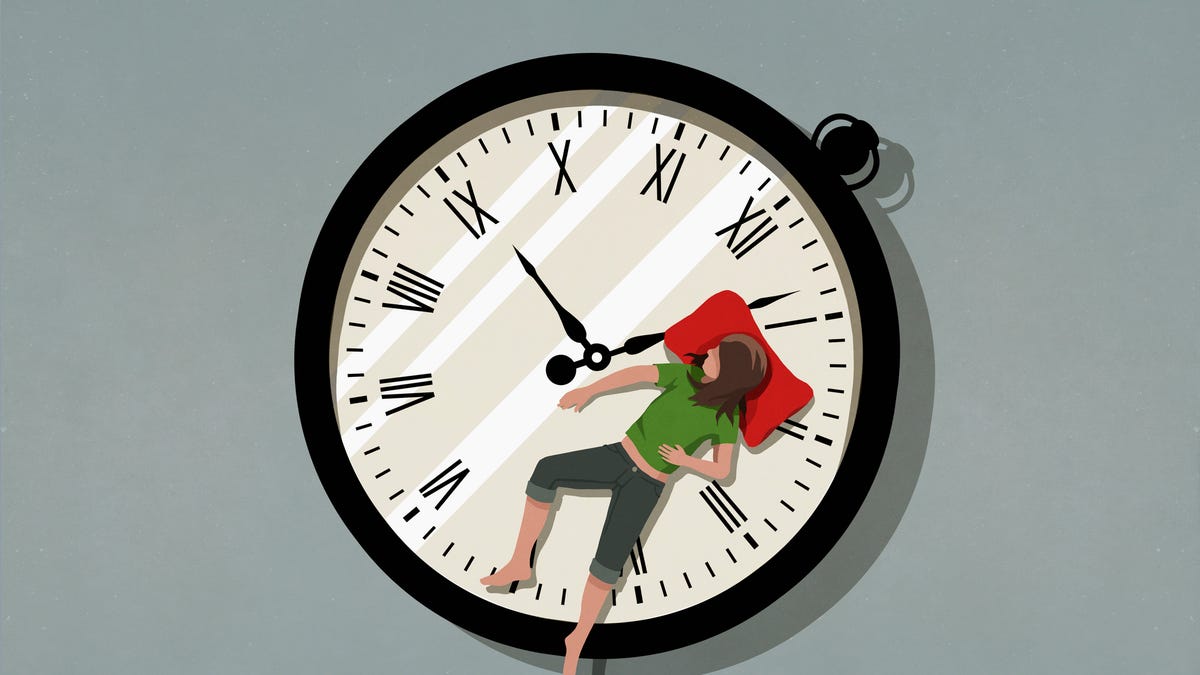
The end of DST is drawing near, which means shorter days and longer nights. According to a survey by the Sleep Doctor, 25% of people said the time change affects their sleeping habits. If you’ve had trouble falling asleep or staying asleep during a time change, here are a few ways to get your circadian rhythm — the body’s internal alarm clock — back on track.
Read more: The 7 Best Foods for Better Sleep
How to reset your body’s alarm clock
To promote healthy sleep hygiene and prevent the ramifications of losing sleep after daylight saving time, consider following these tips.
1. Don’t adjust your wake-up time straight after the time changes. After a few days to a week, your body will become acclimated to the new time. Instead, consider taking a short 20-minute nap in the afternoons to help give you more energy. Long naps, however, may leave you feeling drowsier.
2. Avoid alcohol, caffeine and unhealthy meals before bed. These substances cause sleep disruptions that keep you from getting the quality seven to nine hours of sleep you need to maintain physical and mental health.
3. If you’re an early riser, go outside early in the morning to get some light. Light helps you stay more alert during the daytime, and will reduce your body’s production of melatonin, which causes drowsiness. You can also consider a sunrise alarm clock. It omits a natural light in your bedroom to gently wake you up in the morning like the sun’s light would. It’s especially handy now that the sun rises later.
How daylight saving time affects your body
Your circadian rhythm is your body’s internal clock, which follows a 24-hour cycle. It plays an important role in dictating your sleep-wake cycle, and it’s heavily influenced by cues from the light and darkness. When daylight saving time kicks in, it can delay your circadian rhythm, causing you to feel sleepier in the morning while it’s still dark, and more energetic in the evening as the sun stays up later.
If you’ve ever traveled to a region with a different time zone than you’re used to, you’ve likely experienced a similar disruption in your circadian rhythm with what we call jet lag. For instance, if you travel from New York to California where there’s a three-hour time difference, 9 p.m. feels like midnight to your body, and you’re much drowsier than usual.
At first glance, a small change in your routine may not seem drastic. However, studies have shown that disruptions caused by DST can have quite the impact on your sleep hygiene and overall health if you aren’t wary.
The consequences of daylight saving time
The average person will sleep around 40 minutes less on the Monday following the start of DST, according to one study. Aside from feeling drowsy, experts have also cited (in more serious cases) an increase in workplace accidents, heart attacks, mood swings and even car crashes after switching from standard time (November to March) to daylight saving time. Poor sleep quality and changes in our sleep-wake cycle seem to be driving factors of these events, and it’s a major argument for experts pushing for the abolishment of DST.
More Read: Why Your Internal Clock Keeps You Up at Night
The proposed benefits of daylight saving
On the flip side of the coin, there has also been research pointing to the benefits of observing DST. While car-crash fatalities seem to increase the day after switching from standard time to DST, they may decrease in the long term, possibly in part because of longer daylight hours. There also seems to be a decline in crime for this reason, since crimes are less likely to occur during daylight hours.
Separate from direct human health effects, DST also promotes less energy consumption. One 2008 study by the Department of Energy found that an additional four weeks of daylight saving time saved 1.3 billion kilowatt-hours, the equivalent of the amount of energy used by 100,000 households in a year.
As experts continue to weigh in on the benefits and drawbacks of daylight saving time and whether we should observe it, there are things you can do to combat its negative side effects in the meantime.
